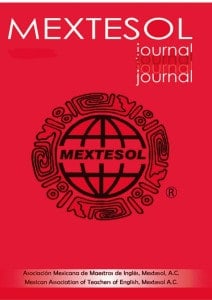Question:
Submitted by Paresh Kumar Bhoi, India
1.What goes into the pre-service training of a language teacher at the elementary level?
2. What skills and knowledge-bases are required to be a part of a pre-service teacher training programme at the elementary level?
Professor Richards Responds:
Teacher training normally involves providing novice teachers with the practical skills and knowledge needed to prepare them for their initial teaching experience. Teacher training involves processes of the following kind:
- Understanding basic concepts and principles as a prerequisite for applying them to teaching.
- Developing a repertoire of classroom techniques, routines, skills and strategies.
- Having opportunities to try out different strategies in the classroom.
- Developing ability to teach using a textbook and classroom technology.
- Monitoring oneself and getting feedback from others on one’s practice.
Training involves the development of basic concepts, theories and principles and a repertoire of teaching skills, acquired through observing experienced teachers and engaging in practice-teaching in a controlled setting, e.g. through micro-teaching or peer teaching. Taking this perspective, good teaching is seen as the mastery of a body of basic knowledge and a set of skills or competencies. Qualifications in teacher training such as the CELTA (Certificate in English Language Teaching to Adults) are typically offered by teacher-training colleges or by organizations such as the British Council, and provide novice teachers with a recognized entry-level qualification as an ESL/ELT teacher. The worldwide demand for qualifications of this kind has led to the development of many courses, available both in face-to-face formats or online. For example, the Teaching Knowledge Test (TKT) is a test developed by Cambridge English Language Assessment for teachers of English to speakers of other languages. The TKT tests knowledge of concepts related to language, language use and the background to and practice of language teaching and learning. TKT consists of three core modules: language and background to language learning and teaching; lesson planning and use of resources for language teaching; and managing the teaching and learning process. There is also a practical module and a further three specialist modules (Knowledge About Language, CLIL, Young Learners).
Teacher development serves a longer-term goal and seeks to facilitate growth of the teacher’s general understanding of teaching, of the teaching context and of his or her performance as a teacher. It is often the focus of in-service education. It thus builds on the initial knowledge and skill base acquired through teacher training. One aspect of teacher development involves developing a deeper understanding of the knowledge base of language teaching. This has typically meant mastering the discipline of applied linguistics and developing a more advanced and theory- based body of knowledge, not linked to a specific teaching context. Applied linguistics encompasses the language-based subjects (e.g. grammar, phonology, sociolinguistics, discourse analysis), the learning-based subjects (e.g. second language acquisition, psycholinguistics, learning strategies), the teaching-based subjects (e.g. methodology, teaching the four skills) and the curriculum-based subjects (e.g. course design, materials design, assessment).
Another dimension of teacher development, however, deals with the examination of different dimensions of one’s own practice as a basis for reflective review, and that can hence be seen as practitioner-driven. Qualifications in teacher development such as the DELTA course or an MA degree, are offered by training organizations and universities and are intended for teachers who have already developed their practical teaching skills and now wish to acquire the theory and knowledge base that supports these skills. Many such courses today are also available online or in distance mode, to suit the circumstances of the many practising teachers who are unable to take time off for full-time study.
 The journal of the Mexican TESOL Association – MEXTESOL Journal – will shortly celebrate its 40th anniversary. To celebrate the anniversary the journal will add a special feature to each issue, described as “A Vintage Article–an article that has had great influence on our readers or that has a place in the history of ELT.” They have chosen to feature an article by Jack Richards published in the journal in 1994 entitled
The journal of the Mexican TESOL Association – MEXTESOL Journal – will shortly celebrate its 40th anniversary. To celebrate the anniversary the journal will add a special feature to each issue, described as “A Vintage Article–an article that has had great influence on our readers or that has a place in the history of ELT.” They have chosen to feature an article by Jack Richards published in the journal in 1994 entitled